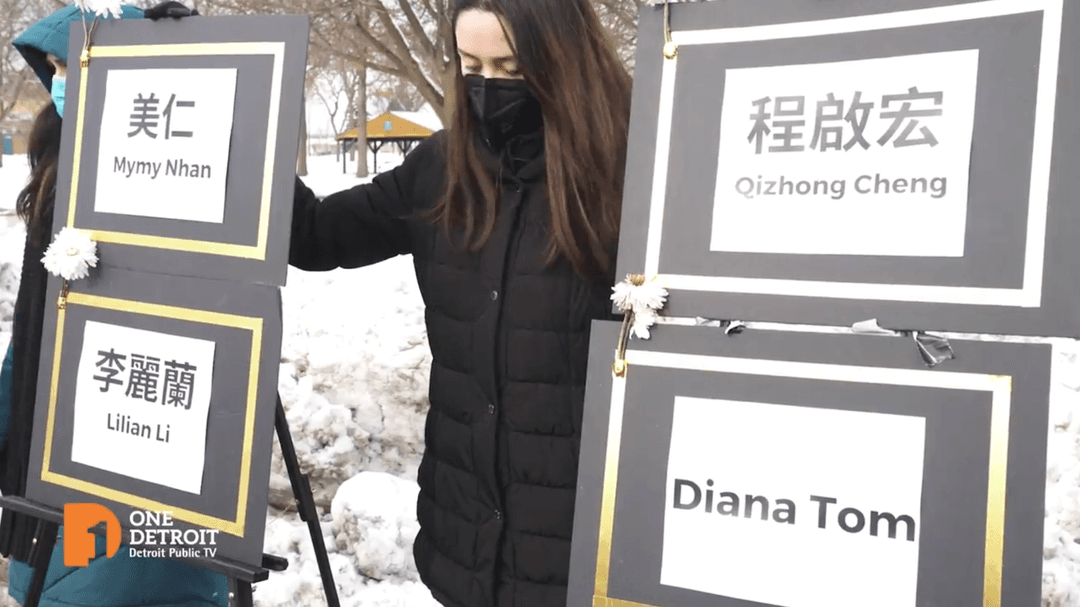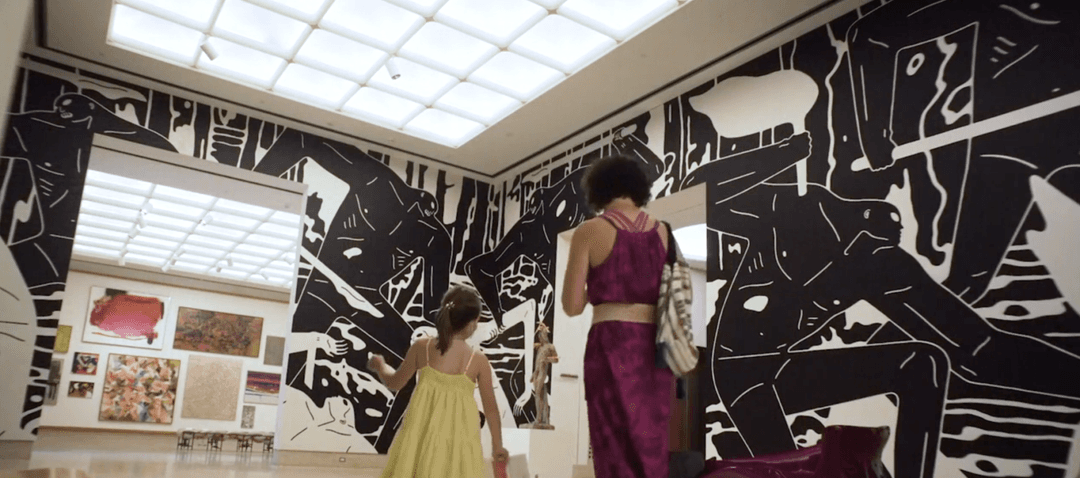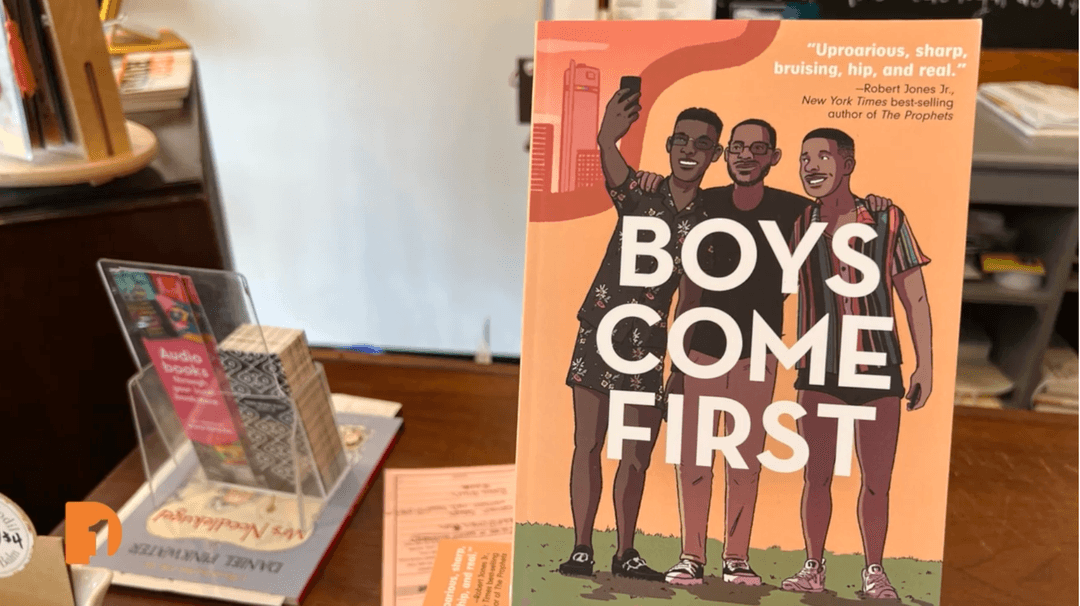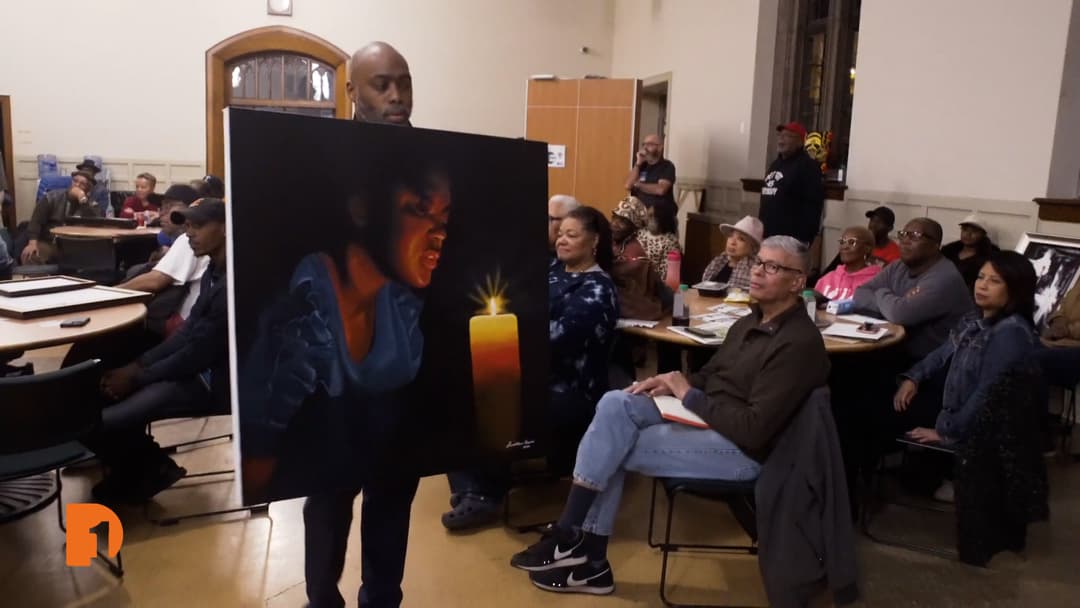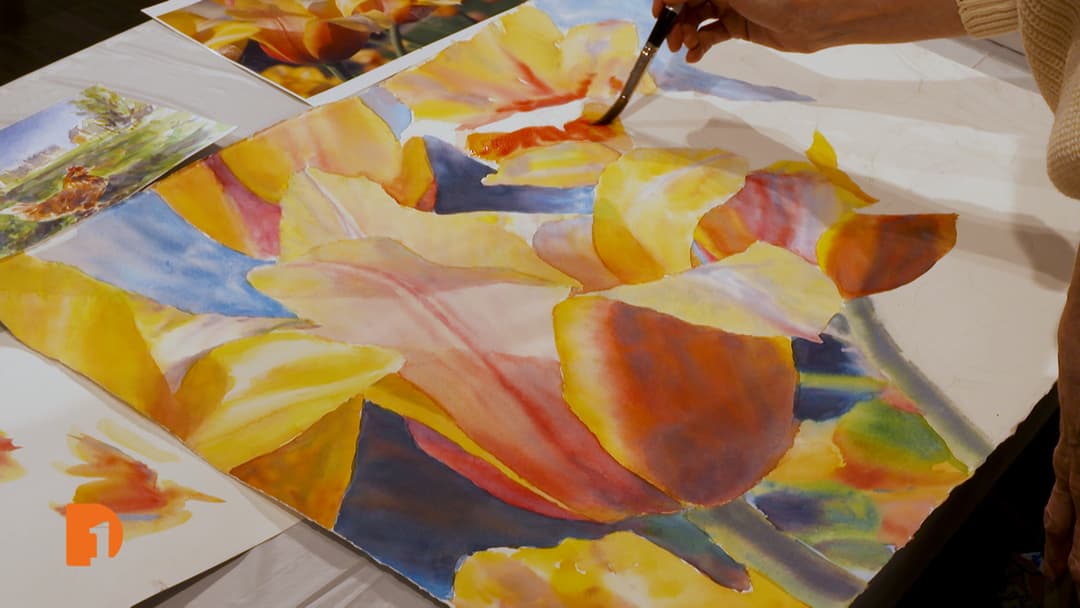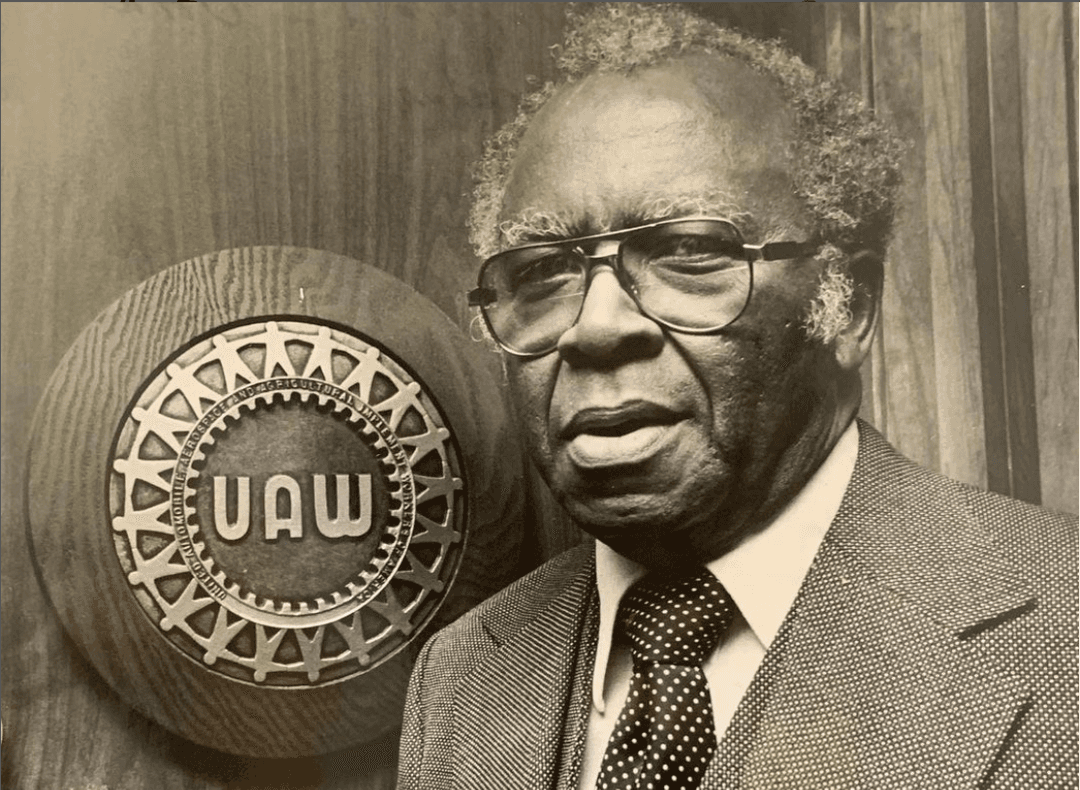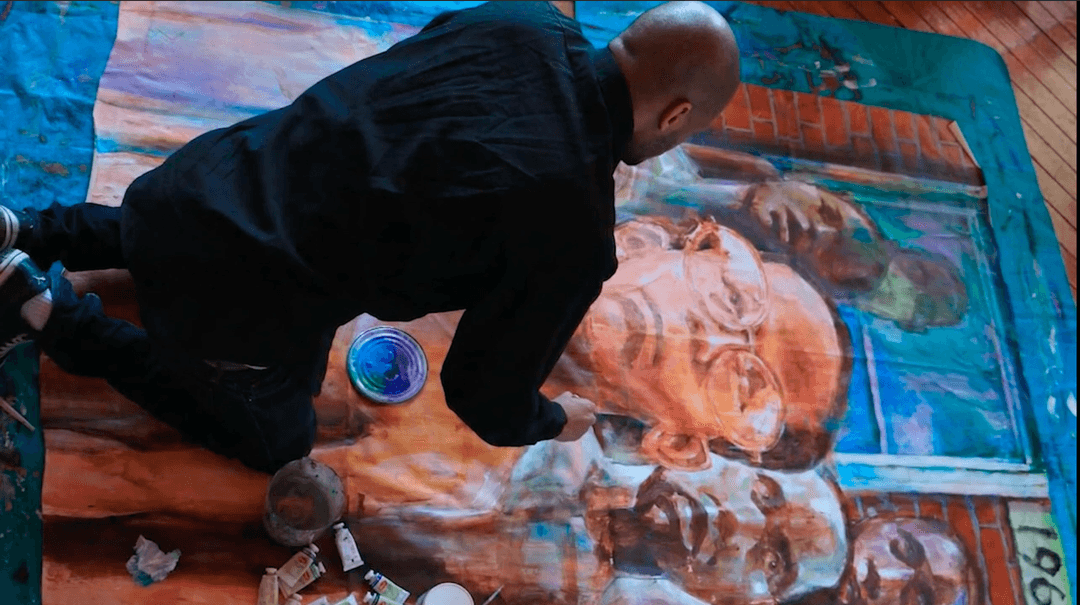Northwest Detroit Development Named After Artist Tylonn Sawyer
Jan 17, 2022
A new mixed-use development project coming to Northwest Detroit will be named in honor of a local artist some Detroiters might know. The project will be named Sawyer Art Apartments in honor of Detroit contemporary artist Tylonn Sawyer, who plans to provide interior and exterior artwork for the new building. In light of this news, One Detroit’s Will glover sat down with Tylonn to discuss the development’s name, how digital media may help or hurt Black artists, and what it’s like to address racism in America through a Black artist’s eyes.
Full Transcript:
Will Glover, Associate Producer, One Detroit: So Tylonn, the themes of your work delve into the cross-sections of race, politics, identity. When you create this work, who is it for and what do you hope they get out of it?
Tylonn J. Sawyer, Artist: I guess you can specifically say like white people, but that’s not necessarily the case because I consider myself American, and when I refer to, like the founding fathers, I noticed that I put Our in front of it, right? So like, obviously, that’s a type of ownership that I take on. Some other people may not.
Tylonn J. Sawyer: But even I would say, I bet you if they’re American somehow, subconsciously, they still maybe think that way. And so creating works like that similarly that to most things that I do, I think that it’s about getting the viewer to engage with our history and even recent history in a more thoughtful way, then just to romanticize the way that we become accustomed to it, you know.
Tylonn J. Sawyer: I hope that my art does sort of influence younger people or people to think a much more nuanced way about these problems because we have heavy-handed problems, but they’re so intricate it’s hard to just say, do this and this’ll fix that, you know? You know, defund the police that’s going that is that that’s what’s going to stop all of the killing, you know, like and get where it comes from.
Tylonn J. Sawyer: But I mean, like, it’s such a complicated problem. You know, like you can’t just use, you know, like something that needs a scalpel you come in with, you know, like a sledgehammer or something like that like this. That’s unfortunately, that’s the way I think that how we’ve gotten to where we are socially in this country. And so a lot of my work kind of deals with that.
Tylonn J. Sawyer: Like you mentioned that painting like a gentle reminder, you know, and it’s a black power fist with butterflies on it that have but instead of the monarch designs, it’s a Confederate flag, you know, and butterflies are a metaphor for reincarnation in certain eastern religions. And so racism kind of slowly reincarnate itself in a different way. It’s not that good old boy mass lynching pickup truck or like angry, you know, like southern Confederate sort of thing now.
Tylonn J. Sawyer: Now it takes place subtly in boardrooms. It’s policies that disproportionately affect people of color. It’s the way that we may not see people who look like us on television shows. When we do see folks that look like us on television shows, it’s a script written by a person who never lived our lives. So when we hear the dialog, it’s there’s this disconnect from like, who I am versus like who this who they’re presenting, like on television.
Tylonn J. Sawyer: And so, yeah, like when I, on my work, I try to pay attention to like those little subtleties, the little things that, are causing these bigger problems. You know, because a lot of times that’s what it is, it’s just a bunch of little things that compound themselves into these big mass problems.
Will Glover: So as an artist with a resume like yours, what advice do you give to artists who, you know, want something similar for themselves?
Tylonn J. Sawyer: Usually it’s young people, and I would say you have to have hard work and you have to have passion like all these things have to kind of coalesce at the same time. Like my work is heavily research-driven. My paintings are very laborious. I spent a lot of time working on it. Sometimes it happens quick, but that isn’t the case the majority of the time.
Tylonn J. Sawyer: I can say how many books I have to read, the networking aspect of it. It’s a lot of hard work. It exhausts you and sometimes you have to be pushed and you have to push yourself because no one else is going to do it. We live in a time where a big, big chunk of the messaging to younger people about safe spaces take your time, you know, like your anxiety, you know, like, take care of yourself, your anxiety, you know, self-care you should have been doing. You should. Yes, you should take care of yourself.
Tylonn J. Sawyer: But all humans have anxiety. I don’t know. I have a lot of anxiety right now. You know, just from teaching and this job. And I can imagine what you do like this is just a part of the human condition. And I’ve often, and I don’t know, like from what I see, the narrative seems to make these aspects, which are the tribulations. And but they are average parts of the human condition, and they are given like this special credence to stop people from putting their best foot forward.
Tylonn J. Sawyer: I do think that you should address those issues via therapy or whatever it takes, what is considered self-help, self-care. But simultaneously, man, I get in the studio and I work like I come from a blue-collar family who went to, you know, they go to work every day to take care of their families, their homes.
Tylonn J. Sawyer: And so I have to go to work every day. Rather, I’m teaching. When I’m not teaching, I need to be in the studio doing the same thing with that type of ethic. Yes, it’s a lot of hard work and I am drained at the end of the day. But man, what a labor of love.
Tylonn J. Sawyer: What great problems to have, to be exhausted from painting rather than filling out TPS reports in the office. And I made a very conscious decision to change my life to what it is now and be an artist and be an educator. And I’m a thousand times happier.
Subscribe to One Detroit’s YouTube Channel & Don’t miss One Detroit Mondays and Thursdays at 7:30 p.m. on Detroit PBS, WTVS-Channel 56.
Catch the daily conversations on our website, Facebook, Twitter @DPTVOneDetroit, and Instagram @One.Detroit
View Past Episodes >
Watch One Detroit every Monday and Thursday at 7:30 p.m. ET on Detroit Public TV on Detroit Public TV, WTVS-Channel 56.
Stay Connected
Subscribe to One Detroit’s YouTube Channel and don’t miss One Detroit on Thursdays at 7:30 p.m. and Sundays at 9 a.m. on Detroit PBS, WTVS-Channel 56.
Catch the daily conversations on our website, Facebook, Twitter @OneDetroit_PBS, and Instagram @One.Detroit
Related Posts
Leave a Reply
Your email address will not be published. Required fields are marked*



